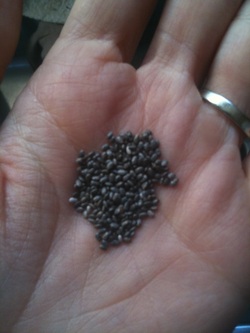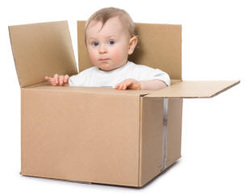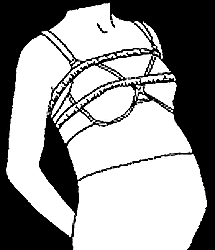 You know how much I love doulas... I think they are just about the COOLEST people on earth. A doula takes the best part of a superhero and the best part of a best friend and makes something twice as good as both. So how do you choose someone who will come into your house, share in one of the most important days of your life, see you vulnerable and nude, and possibly lay hands on you? Selecting a doula is easy, but it isn't simple. Research First: Do the doulas in your town have regularly scheduled meet and greets? My guess is that they do, because they want to meet you just as much as you want to meet them. Find a time when you can attend a gathering, or do some research online. If you attend prenatal yoga, you might be able to ask about who the other participants are using, have interviewed, or think about birth support. Keep Your Mind Open: You might have a very concrete sense of what you want for your birth (you can read my opinion about birth plans), but what is more important than the "plan" are the values. If you are strongly interested in one manner of birth, it is important that your doula supports you. However, your doula may be able to offer you more guidance than you thought you needed, if you keep your mind open to additional information and opinions. Listen to what they offer and most importantly why they provide the services they do. This is why... You Must Meet and Interview THREE: Some doulas have gorgeous websites, lovely photos, and lists of helpful resources. Some have a modest online presence. Some aren't online at all. Regardless of how much you like someone's persona on the interwebs, you're not birthing your baby there, so meet them in person. Trust your GUT: You know what they say about mother's intuition? Let yourself try some on. If all the signs point 'yes' but your stomach or your heart say 'no' then listen to yourself. The doula will not be personally offended if they are not selected, because they know they are likely to be one in three that you're choosing from. This is part of the business. Look Early, Book Early: If you think you'll want to use the services of a doula, start researching early (like immediately, if you're already pregnant). Once you find the one you want, book early. A doula can only attend one birth at a time, so be aware that a great doula might have a very full calendar. Understand their rates and guarantees in terms of availability and make the right choice for you. Back up: Doulas, superhumans that they are, can get sick. They can experience a death in the family, or wind up with two mamas in labor at the same time no matter how well everything else is planned. Ask your prospective doula(s) what they do when they're not able to attend a birth and how they will offer support, or who they will send instead. What else did you do when selecting your doula? Were there questions you wish you would have asked? Not sure you need a doula? Try To Doula or Not To Doula I work in a labor doula practice. Learn more about what we do.
0 Comments
 What do you know about Omega 3 fatty acids? You may or may not have had a conversation with your midwife doctor about omega 3s when you talked about diet and supplements. In case you didn't here is a primer about what you might like to know: Omega 3s come in three types: ALA, DHA, and and EPA. DHA is critical for your baby's brain development. Your body is capable of creating DHA and EPA from ALA. ALA must come from a dietary source. You might think you need to eat fish, and if you're like me and the thought of eating fishes makes your stomach turn for one reason or another, I'd like to make a couple of suggestions. Sure, you can eat fish like salmon, herring, and sardines to get your omega three's, but you can also expose your developing baby to heavy metals like mercury by eating fish that has been poisoned with high levels of metals. Oil supplements? I'm almost as afraid of "fish oil burps" as I am afraid of the fish themselves. You can cut out "the middle fish" and get your omega threes the way they do: from algae (yum?). Not to worry, there are lots of great algae supplements out there, so you don't need to set yourself up for something equally as distasteful. If you like seaweed, you can do a little research and make some veggie sushi rolls and get your omega 3s in a tasty lunch. There have been no studies (that I can find on reputable websites) indicating the safety of flax and chia in pregnant women. Some worry that flax has estrogenic activities or that the consumption of these kinds of seeds in their whole form might cause GI distress in people with diverticulitis. I'd love to find a reputable study or two to support any concerns, so please share if you find any! Other foods with estrogenic activities include sweet potatoes, dairy and soy. I personally enjoy both flax and chia on a regular basis. Both flax and chia only provide the ALA form of Omega 3s (which is the only form you must take in via your diet). The bottom line? Ask your doctor or midwife and do some research on your own to determine the best form of Omega 3s in your life. And then find and share some recipes with your other pregnant friends!  Thanks to Kidsguide UK for the photo. Disclaimer: I have no babies, and I've never registered for baby goodies. I have, however, taught lots of classes with women who have both registered and received/not received things they needed... and I've heard enough to share their wisdom with you. Think Local: If you register with a big box store and have any issues with your gifts, returns, broken items, and more, you are sent through a tireless loop of FAQs, menus, and hold songs. If you register with a smaller store in your home town and get to know the people who work there, they will offer you free advice, work with you for exchanges, and recommend products that you and your baby will actually need and use (rather than issuing you a generic list and a scan-gun). When I ask women what they would have done differently, they all say they wouldn't register with one particular big box store because it was impossible to get what they wanted, return what they didn't, and even have items shipped as expected. Less is More (space, money, time): You might be the kind of family that thinks you'd like a pacifier on every end table, but your baby might not take a pacifier. If you register for fifteen of them at the suggestion of a valued friend and you baby never uses them, that's quite a bit of wasted plastic, time, and gift-wrap. Crib skirts are super cute, but are crib legs really that ugly? Think about what you might actually use in the first few weeks and then head out once baby arrives and buy whatever you're missing. Think Quality (of life, that is): Unless you are tickled to have your mother, sister, mother in law, or BFF move in with you, consider asking your friends to contribute towards hiring a postpartum doula. The $500 you spend is worth all the cheap onesies, receiving blankets, toys, and wipe warmers in the world. Follow your Values: If you recycle your cans and jars and consolidate car trips to save a little wear and tear on the Ol' Mother Earth, consider what you can reuse. Cloth diapering a baby costs several thousand dollars less per year than using disposables. It also doesn't smell nearly as bad and you never have to do a midnight run to the drug store through a snow storm to buy replacements. Cribs and high chairs are more likely to be improved from year to year, but if you have a friend whose child is soon moving out of theirs, you can check model numbers online and confirm that no recalls have been issued for the product. Keep It Simple, Sally: Here is the short list of things you actually need before the baby arrives: 1. Boobs 2. Carseat My guess is that if you're pregnant, you're halfway done. If you're pinching your pennies, get a carseat as soon as you can and get it installed (they don't let you leave the hospital without one). What, you wanted a real list? My basic list is here, free for you to download. Enjoy!  Photo: ABC Maternity Do you get the feeling that everyone wants to talk about your breasts? When it comes to pregnancy and breastfeeding, there are a lot of experts out there who can offer assistance in all areas of breast health. There are also people out there masquerading with credentials that don't indicate much actual knowledge. Here's your breast expert primer: Breastfeeding Specific Folks: CLE: A Certified Lactation Educator is someone who knows quite a bit about normal, healthy breastfeeding and can offer education about how healthy mama and baby can give breastfeeding a go. They also offer training about pumping, going back to work, tandem nursing, and common complaints. A CLE is a great first-line of defense when you're not sure where to go with a question because they agree to a professional code of non-judgement. Think of this person as a personal trainer for breastfeeding. La Leche League Leader: A LLL Leader is a woman who has breastfed at least one baby for 12 months and has significant training and education about supporting other women. While some education is part of the role of a LLLL, the other aspect is support. Breastfeeding can be emotional as questions and concerns arise, particularly as it relates to family support of breastfeeding, questions about breastfeeding in public, and cultural considerations. This is a volunteer position filled by women who have a strong passion for breastfeeding. Think of this person as a life coach for breastfeeding. IBCLC: An Internationally Board Certified Lactation Consultant is someone with two years of academic training and thousands of hours of hands-on experience working with women with breastfeeding problems. Some are employed by hospitals and breast-pump rental centers, and others work as independent contractors. They specialize in difficulties, whether baby was born early, there are medical concerns, multiple babies, infections, or concerns about supply. They know how to support women with medical problems like engorgement, mastitis, hormonal challenges, a history of breast surgeries and even adoptive mothers who want to breastfeed. Think of this person as a physical therapist for breastfeeding. Birth Professionals: RN, LPN, BSN, MSN, NP, PA, MD, DO: These are nurses and doctors with varying levels of medical training. Unfortunately, breastfeeding isn't covered very well in nursing or medical school. Unless you know where your nurse or other practitioner trained, you don't know how much support they may offer for breastfeeding. If you're not sure, always consult an IBCLC as well. Formula companies often offer professional development for these professionals, but because they are selling a product that is not consistent with exclusive breastfeeding, they may not teach techniques that could help preserve or work towards exclusive breastfeeding. CNM: A certified nurse midwife should be a better bet when it comes to breastfeeding information and support, because there are specific courses in CNM school that support healthy breastfeeding. CPM, ASM, BSM, MSM: A direct-entry midwife also has more training when it comes to breastfeeding as all accredited programs for midwifery in the US require breastfeeding training and support. Other Professionals: PPD: Postpartum Doulas are trained in supporting normal breastfeeding as a part of their practice. There are two organizations who offer this credential, and both require significant study of healthy breastfeeding. Bra fitters: Ok, you might laugh, but you're going to need some "support" when it comes to your changing body. While you can simply go to a department store and buy a nursing bra or top, this is one time in your life when it would be very helpful to work with someone. I know if you live in Colorado Springs you can get fitted at Baby Cotton Bottoms and only need two bras to take you from 16 weeks pregnant through nursing! A couple of quality bras (and possibly some nursing pads) can be worth the price when they keep you as comfy as possible. |
About meI'm one of those people who loves making your life easier (and I believe in you). I am an experienced registered prenatal yoga teacher and a lactation educator. Want more? My monthly newsletter might be for you.
Archives
April 2014
Categories
All
|
 RSS Feed
RSS Feed
